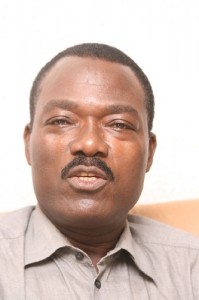An African in Paris
By Soumanou Salifou

Founder/Publisher
“The African” Magazine
An airline employee’s incompetence (or ignorance) caused me to spend one day and one night in Paris during my latest trip back from Africa to the United States, instead of the usual 5-hour stop-over. But, what terribly annoyed me at the beginning turned out to be a great learning experience about genetics, the French, and globalization.
I was fooled by the appearance of the Paris representative of the African airline that I flew from East Africa to the French capital, Eric Gueye, who, in the context of his normal duties, assisted me with my transit visa and with hotel accommodation. Even after Eric Gueye had told me his family name – which sounded like a typical name from Senegal, West Africa – I had no idea this gentleman with razor-blade-sharp Caucasian features and a pure Parisian French accent had anything to do with Africa. However, as we walked and bused from one terminal to another, I was struck by his warmth (something unusual in Europe, especially Paris) and his generosity when he insisted sincerely (though unsuccessfully) to pay for my lunch. As we talked casually over lunch, I found out that he is a grand-son of the late Lamine Gueye, an illustrious Senegalese politician, and I was amazed by the power of genetics thanks to which this much Africa has lived on in this young man through several generations.
The French that I met at the airport during what turned into a shopping frenzy were utterly different from those I grew up with and worked with for many years back in France and in the United States: the “new breed” that I just met where friendly and even had a sense of humor.
For instance, when I asked Stéphanie, an Air France employee who had to make ten phone calls to find Eric, for her business card in order to probably send her a thank-you email, she answered with a cute smile: “I don’t have a business card. I am only a small employee.” Even the immigration officer who processed my visa application, who seemed familiar with Africa, greeted me with a few words in an African language once he saw my passport. ( I forgave him for his poor pronunciation and horrible accent.) Better yet, he was able to tell from my date of birth that I was born after the rainy season. “What’s your name?” I asked him in the end. “Just call me the chief,” he answered. I thought he deserved more than that; so, when I got my visa I said “Merci mon commandant” (Thank you, Major.) “Non, lieutenant” (No, lieutenant) – which is a higher rank than that of lieutenant in the army – he said, in a humble tone that sharply contrasted with his statement.
During lunch aboard the flight, I was impressed by the salad (even more than is to be expected in first class), and with my tongue loosened by the great taste of the French merlot, I told the flight attendant to pass on my appreciation to the chef. “In fact,” the beautiful blue-eyed, blond, tall young lady said, with a broad smile, “I fixed it myself this morning.”
My cheerful mood did not stop there, as the main course proved delicious, too. “Buenísimo,” (very good) I said to the passenger next to me whom I knew was a Spanish speaker. Ho looked at me coldly without uttering a word. It can’t be my Spanish, a language that I taught for a couple of years several decades back, I told myself. I would not give up. “Me gusta mucho, y usted?” (I like it very much, how about you?) I added. I got the same distant look. Then I realized that there are other limitations to globalization than Africa’s relative exclusion from the thing.


